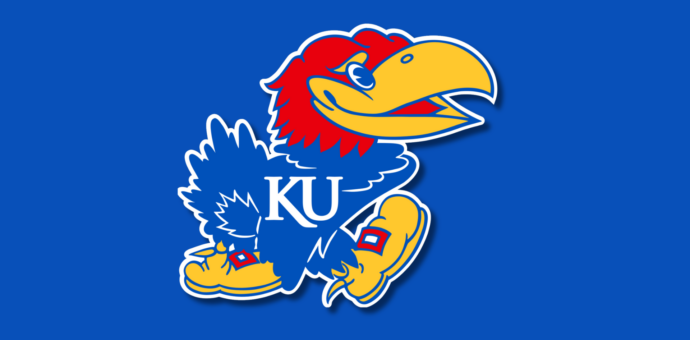Former University of North Carolina head men’s basketball coach Dean Smith died Saturday evening in Chapel Hill. He was 83 years old.
“Coach Dean Smith passed away peacefully the evening of February 7 at his home in Chapel Hill, and surrounded by his wife and five children,” the Smith family said in a statement. “We are grateful for all the thoughts and prayers, and appreciate the continued respect for our privacy as arrangements are made available to the public. Thank you.”
Smith was the head coach of the Tar Heels from 1961 to 1997, retiring as the winningest coach in college basketball. He led the Tar Heels to national championships in 1982 and 1993, to 13 ACC Tournament titles, 11 Final Fours, and an NIT championship, and directed the United States Olympic Team to a gold medal at the 1976 Summer Games.
ESPN’s SportsCentury program selected Smith as one of the seven greatest coaches of the 20th Century with Red Auerbach, Bear Bryant, George Halas, Vince Lombardi, John McGraw and John Wooden.
In 36 seasons at UNC, Smith’s teams had a record of 879-254. He set the record for winning more games than any Division I men’s coach in history, surpassing Kentucky’s Adolph Rupp with his 877th victory over Colorado in the 1997 NCAA Tournament. He finished his career by leading UNC to the Final Four in four of his final seven seasons.
Under Smith, the Tar Heels won at least 20 games for 27 straight years and 30 of his final 31. No coach in history had ever produced that many consecutive 20-win seasons.
Carolina was ranked in the final Top 10 of both the Associated Press and coaches’ polls each year from 1981-89. Smith’s teams finished the season ranked No. 1 in at least one of the two major polls four times (1982, 1984, 1993 and 1994).
His teams were the dominant force in the ACC, posting a record of 364-136 in ACC regular-season play, a winning percentage of .728. The Tar Heels finished at least third in the ACC regular-season standings for 33 successive seasons. In that time, Carolina finished first 17 times, second 11 times and third five times.
His teams played in 11 Final Fours, second in number only to Wooden, who had 12. Smith’s teams made 23 consecutive appearances in the NCAA Tournament. In his last 31 years, Smith led the Tar Heels into the NCAA Tournament 27 times. Carolina reached the Sweet 16 of NCAA play each season from 1981-93. That 13-year streak is the second-longest in Tournament history to a 14-year stretch by UCLA from 1967 to 1980.
Sports Illustrated selected Smith as the Sportsman of the Year in 1997; he received the Arthur Ashe Award for Courage at the annual ESPY Awards.
In 2013, Smith received the Presidential Medal of Freedom, an award that his wife, Linnea, accepted on his behalf from President Barack Obama at a White House ceremony.
Smith was inducted into the Naismith Memorial Basketball Hall of Fame in 1983 and is also a member of the the FIBA Hall of Fame, the North Carolina Sports Hall of Fame, the Kansas Sports Hall of Fame and the College Basketball Hall of Fame. In 2006, he was named to the inaugural class of the National Collegiate Basketball Hall of Fame along with James Naismith, Oscar Robertson, Bill Russell and John Wooden.
Smith also became the first recipient of the Mentor Award for Lifetime Achievement, given by the University of North Carolina Committee on Teaching Awards for “a broader range of teaching beyond the classroom.”
Born February 28, 1931, in Emporia, Kan., Dean Edwards Smith grew up as the son of public school teachers. He graduated from Topeka High School in 1949 and went to the University of Kansas on an academic scholarship. He played varsity basketball and baseball and freshman football for the Jayhawks. He was a member of Jayhawk basketball teams that won the NCAA title in 1952 and finished second in 1953.
Smith was an assistant coach at Kansas to Phog Allen and Dick Harp, and served in the U.S. Air Force as a lieutenant. While in the service, he played and coached basketball in Germany. Smith served for three years as an assistant basketball coach under Bob Spear and one year each as head baseball and head golf coach at the United States Air Force Academy. In 1958, Frank McGuire hired him as an assistant coach at Carolina. Smith served as an assistant under McGuire for three years before McGuire resigned to become head coach of the NBA’s Philadelphia Warriors in the summer of 1961. At that time, Carolina Chancellor William Aycock tapped the 30-year-old Smith to become UNC’s head coach.
Smith shared his knowledge of the game with a talented group of assistants. Many of them went on to head coaching jobs, including Larry Brown, Roy Williams, John Lotz, Kenny Rosemond, Eddie Fogler, Randy Wiel and Bill Guthridge.
In Smith’s 36-year tenure, more than 50 of his players went on to play pro basketball in the NBA or ABA and more played in other professional leagues both in the United States and overseas.
Six of Smith’s players won rookie of the year awards in either the NBA or ABA, including Charles Scott, Robert McAdoo, Walter Davis, Phil Ford, Michael Jordan and Vince Carter. McAdoo and Jordan won MVP honors in the NBA and Billy Cunningham was the MVP in the ABA. Three of his players –Cunningham, James Worthy and Jordan – were named to the NBA’s Greatest 50 Players. Those three plus Larry Brown and McAdoo also are in the Naismith Hall of Fame.
Smith coached student-athletes who went on to become doctors, lawyers and businessmen. Better than 95 percent of his lettermen earned their degrees.
Smith retired as the winningest coach in the history of the NCAA Tournament with 65 victories. In 36 ACC Tournaments, he had a coaching record of 58-23, a winning percentage of .716.
Smith, who played for the legendary Phog Allen at Kansas in the early 1950s, is one of only two men to both play on and coach an NCAA championship team. Smith was a member of the Jayhawk squad that won college basketball’s top prize in 1952. Bob Knight is the other person to accomplish the feat.
After taking Carolina to the NCAA championship game in 1977, Smith was named National Coach of the Year by the NABC. He received similar honors from the U.S. Basketball Writers Association and Basketball Weekly in 1979 and from Medalist in 1982. He was named the Naismith National Coach of the Year in 1993 after leading the Tar Heels to the national crown.
In 1993, the Atlantic Coast Sportswriters Association named Smith the ACC Coach of the Year, an honor he received on seven other occasions as well—1967, 1968, 1971, 1976, 1977, 1979 and 1988.






